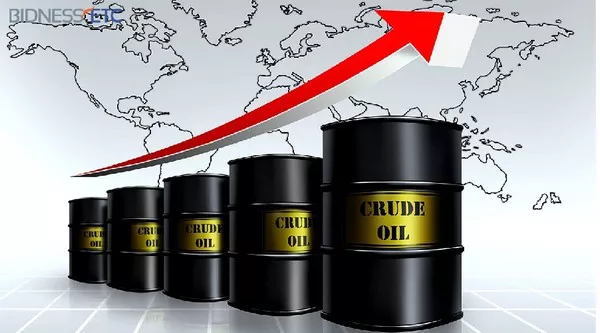Oil prices experienced an increase on Friday as concerns over Russia’s ban on fuel exports, which could tighten global supply, outweighed fears of further U.S. interest rate hikes potentially affecting demand. However, these gains come after oil prices were headed for their first weekly loss in four weeks.
Brent futures rose by 46 cents, equivalent to 0.5%, reaching $93.76 per barrel by 0630 GMT. Simultaneously, U.S. West Texas Intermediate crude (WTI) futures showed an increase of 65 cents, representing a 0.7% gain, resulting in a price of $90.28 per barrel.
Despite these recent gains, both benchmarks were still poised for a minor weekly drop after surging over 10% in the preceding three weeks. These increases were driven by concerns surrounding global supply shortages, primarily due to production cuts by the Organization of the Petroleum Exporting Countries and its allies (OPEC+).
Toshitaka Tazawa, an analyst at Fujitomi Securities Co Ltd, stated that trading conditions remained volatile due to a tug-of-war between supply concerns sparked by Russia’s fuel export ban and worries about diminished demand resulting from tighter monetary policies in the U.S. and Europe. He also predicted that WTI would likely trade within a range of approximately $90 to $95.
The Russian government recently imposed a temporary ban on gasoline and diesel exports to all countries except four ex-Soviet states, intending to stabilize the domestic fuel market. This move caused heating oil futures to surge by nearly 5% on Thursday.
Tina Teng, an analyst at CMC Markets, mentioned that crude oil rebounded from session lows following Russia’s ban on diesel exports, which also included gasoline. This action reversed the previous downside movement in crude markets triggered by the hawkish stance adopted by the Federal Reserve. However, mounting concerns about a recession in the Eurozone could continue to put pressure on oil prices.
The Federal Reserve maintained interest rates on Wednesday but adopted a more hawkish stance, projecting a quarter-percentage-point increase to a range of 5.50% to 5.75% by year-end. This raised fears that higher interest rates could potentially dampen economic growth and fuel demand while bolstering the U.S. dollar, making oil and other commodities more expensive for buyers using alternative currencies.
Following the Fed’s decision, the Bank of England also held interest rates on Thursday after a series of previous hikes but indicated it was not taking the recent decline in inflation for granted. Meanwhile, a European Central Bank (ECB) governing council member suggested that the ECB would most likely keep interest rates stable at its next policy meeting.


